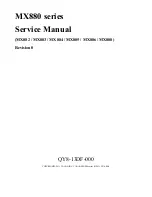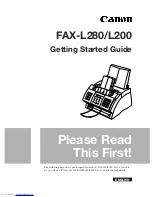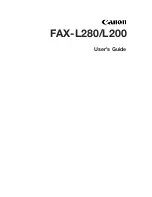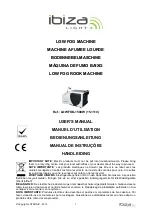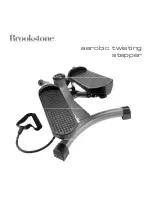
51
3
————————————————————————————————————————————————————————————————————————————————————————————————————————————————————————
c
Use a chalk to mark on the fabric about 5 mm
(3/16 inch) from the edge of the fabric, and
then baste it.
d
Fold back the fabric inside along the basting.
e
Unfold the edge of fabric, and position the
fabric with the wrong side facing up.
f
Attach blind hem foot “R”.
g
Select a stitch.
h
Remove the flat bed attachment and make
free-arm sewing possible.
• For details on free-arm sewing, refer to
“Stitching cylindrical pieces” (page 46).
i
Slide the part that you wish to sew onto the
arm, make sure that the fabric feeds correctly,
and then start sewing.
a
Arm
j
Position the fabric with the edge of the folded
hem against the guide of the presser foot, and
then lower the presser foot lever.
a
Wrong side of fabric
b
Fold of hem
c
Guide
k
Adjust the stitch width until the needle
slightly catches the fold of the hem.
a
Needle drop point
When you change the needle drop point, raise
the needle, and then change the stitch width.
Stitch width
a
Thick fabric
b
Normal fabric
a
Wrong side of fabric
b
Right side of fabric
c
Edge of fabric
d
Desired edge of hem
e
5 mm (3/16 inch)
f
Basting
<Thick fabric>
<Normal fabric>
<Seen from the side>
a
Wrong side of fabric
b
Right side of fabric
c
Edge of fabric
d
Desired edge of hem
e
5 mm (3/16 inch)
f
Basting
g
Basting point
<Thick fabric>
<Normal fabric>
<Seen from the side>
a
Wrong side of fabric
b
Right side of fabric
c
Edge of fabric
d
Desired edge of hem
e
Basting point
f
Basting
<Thick fabric>
<Normal fabric>
<Seen from the side>
1
2
1
2
3
5
6
4
1
2
1
3
6
5
1
1
2
7
4
5
1
1
1
1
1
2
6
3
4
R
R































